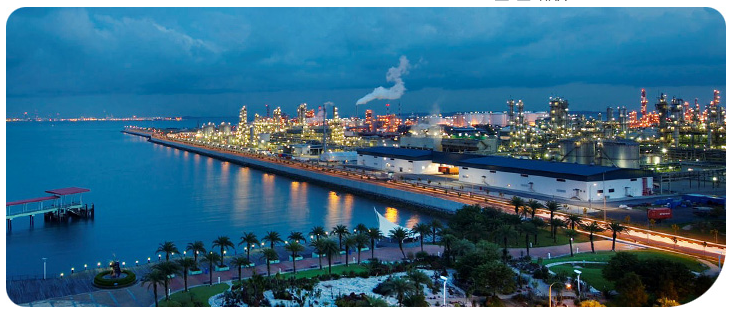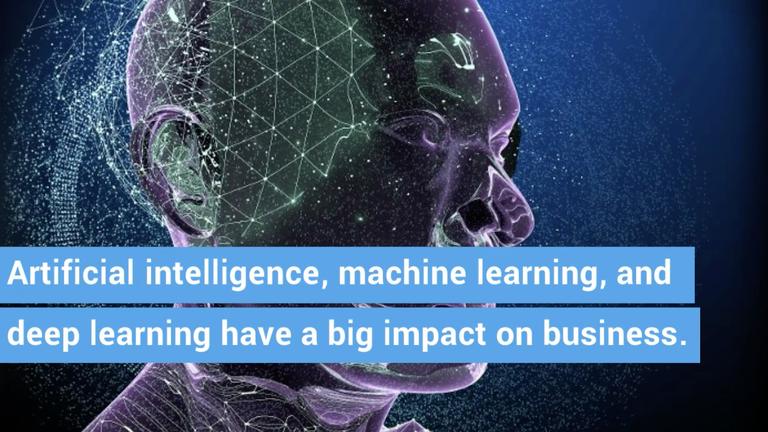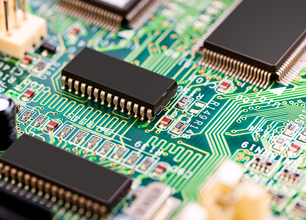Date from

to

Organiser
/

Agri-Food & Veterinary Authority
65734

Association of Consulting Engineers, Singapore
67034

BCA Centre for Sustainable Buildings (BCA CSB)
67105

Building and Construction Authority
65738

City Gas Pte Ltd (as Trustee)
67074

CORENET eSS
67056

Defence Science & Technology Agency of Singapore
67048

Energy Market Authority
67044

Enterprise Singapore
151223

Housing and Development Board
66066

Infocomm Media Development Authority
66072

Institution of Engineers, Singapore
66086

Jurong Town Corporation
66106

Land Transport Authority
66110

LTA Academy
67084

Manpower Development Department
67080

Ministry of Home Affairs
151444

Ministry of Manpower
66239

Ministry of Trade and Industry
67061

Nanyang Technological University
66303

National Environment Agency
66251

National Parks Board
66286

National University of Singapore
66307

Power Gas
66315

Power Supply
66311

PowerGrid
66319

Professional Engineers Board
66323

Public Utilities Board
66328

Real Estate Developers' Association of Singapore
66365

Republic Polytechnic
67101

Singapore Civil Defence Force
66369

Singapore Contractors Association Ltd
67040

Singapore Green Building Council
67092

Singapore Institute of Architects
66592

Singapore Institute of Building Limited
67113

Singapore Institute Surveyors & Valuers
66596

Singapore Land Authority
67052

Singapore Polytechnic
67070

Singapore Structural Steel Society
67109

Singapore University of Social Sciences
103261

Singapore Welding Society
67096

Society for Rock Mechanics & Engineering Geology (Singapore)
67088
Month
All upcoming events (0)
Organiser
Upcoming Events
Institution of Engineers, Singapore
26 Sep 2017 to 26 Oct 2017
The learning points, observations and recommendations from the study trips will be useful as we embark on the next phase of work to encourage our industry to use more GR600 rebars and rebar systems to improve construction productivity. This seminar is organised specifically to share these learning lessons, to discuss the issues confronting our industry and key stakeholders in trying to use GR600 rebars and how we can overcome these issues and move forward together in the same direction.
Institution of Engineers, Singapore
29 Sep 2017 to 29 Sep 2017

Advancing, Networking and Creating Vast Opportunities for Singapore's Engineering Sectors. Safety First. Safety Always. For Future-Ready Singapore.
The "Key Elements of Safety Case" provides participants with insights into recent challenges confronting Singapore's process industry, namely safety case implementation. For safety case implementation, experts will share selected key elements of safety case, notably process hazard analysis, quantitative risk assessment and emergency response planning.
The "Energy Efficiency Improvements" provides participants with professional insights into challenges confronting Singapore's process industry, namely Energy Efficiency Improvements. For energy efficiency improvements, experts will firstly share the role and challenges of Singapore Certified Energy Manager (SCEM) and experiences in real-time energy management; followed by selected case studies.
Institution of Engineers, Singapore
7 Oct 2017 to 7 Oct 2017

Advancing, Networking and Creating Vast Opportunities for Singapore's Engineering Sectors. For Future-Ready Singapore.
Who Shall Attend: Technical Managers, Engineering Professionals, Product Designers and Technical Specialists.
Media Quotes/ Sources/Academic Reports:
https://phys.org/news/2017-04-lens-super-resolution-imaging.html
[A research team led by Professor Hong Minghui and Associate Professor Qiu Cheng Wei from the Department of Electrical and Computer Engineering at NUS Faculty of Engineering has developed a novel supercritical lens, which enable optical microscopes to capture images in real-time and with greater detail beyond diffraction limit. In addition, this technique does not require any pre-treatment of samples or post-processing of the image.
Prof Hong said, "Our breakthrough is achieved in a totally non-invasive manner, coupled with the capability of real-time imaging. This could potentially open up a wide range of applications in areas such as high precision failure inspection in the semiconductor industry, and will also contribute significantly to biological research."]
http://www.straitstimes.com/singapore/new-manufacturing-courses-in-pipeline
[Singapore must keep abreast of global trends such as 3D printing and online connectivity of production chains, said Ms Low Yen Ling, Parliamentary Secretary for Trade and Industry and Education, at the event yesterday.
"Besides investing in advanced manufacturing capabilities... we also need to invest in upskilling our people," she said.
"This will enable our workforce to take advantage of the new and exciting job opportunities in advanced manufacturing."
For example, in remanufacturing for the aerospace industry - which reduces waste by allowing parts to be repaired and reused instead of being replaced - robotics software engineers are needed, said Associate Professor Tan Sze Wee, who is the executive director of the Science and Engineering Research Council at A*Star.
AmpTec Industrial Heating director Ken Teng said that he hopes four of his 14 workers can hone their skills in robotics programming.
His company has developed a robot which is able to perform precision cleaning by shooting streams of dry ice.
"I believe robotics is a future tool of all manufacturing," Mr Teng said.
"It can put our workers into higher-skill positions."]
http://www.straitstimes.com/business/sharing-is-caring-for-smaller-factories
http://www.straitstimes.com/singapore/career-in-sharper-focus-after-switch-to-optical-engineering
http://www.straitstimes.com/opinion/entering-the-brave-new-world-of-advanced-manufacturing
http://www.straitstimes.com/singapore/debate-over-double-edged-sword-of-technology
Institution of Engineers, Singapore
26 Oct 2017 to 26 Oct 2017

Deep Learning is a branch of artificial intelligence (AI) stemming from the abstraction of the functioning of brain cells.
The concept of Deep learning is analogous to the way a child learns about new objects/ things, namely through observations and the tweaking of the parameters of neural networks. Presently, the vast and affordable availability of computing power together with the availability of large volumes of data have surfaced earlier dormant neural networks to limelight.
This gentle unveiling of deep learning will introduce to the audience fundamental concepts of neural networks and illustrate the principles of operation of a simple neural network using the Python programming language.
The presentation will introduce the convolutional neural network (CNN) and will illustrate the coding of CNN using the keras framework in Python Programming.
As this Talk is only a basic introduction to deep learning and is suited for anybody who has an interest in deep learning, experience with Python coding is not necessary but useful.

IES Electrical, Electronics and Computer Engineering Technical Committee (EECETC) and Singapore Polytechnic proudly present: "Building an IoT Project". [In Singapore, Internet-of-Things (IoT) technologies are set to play a key role in the city-state's digitalization push and Smart Nation plan. IoT refers to a network of Internet-connected physical objects, vehicles, buildings and other items embedded with sensors, electronics, and software. These objects are able to collect data without requiring human-to-human or human-to-computer interaction. Examples of objects that can fall into the scope of IoT include connected security systems, thermostats, cars, electronic appliances, vending machines and more. Businesses and individuals can leverage IoT applications to automate tasks, such as notify authorities when a fire extinguisher in a building is blocked, or automatically adjust a room's AC.]
CPD/ PDU: 3 (three) PDUs PEB PEs and IES CEngs (Approved/ Confirmed for all engineering branches/ disciplines and/ or engineering branches/ disciplines listed in http://charteredengineers.sg/branches/). (Accreditation of CPD PDU for IES Chartered Engineer (C.Eng)/ Attendee will be duly accredited/ awarded correspondingly/ similarly to those approved/ confirmed by PEB.)
Institution of Engineers, Singapore
16 Jan 2018 to 16 Jan 2018
1.Included in this talk are pointers, which have come to my mind based on my years experience and involvement in contracts of construction projects in Singapore and Malaysia. It is not my intention to discuss everything and every issue that one may come across in contracting of construction projects. Pointers given confine only to those issues and things that some practitioners seem to have overlooked, ignored or have not given due regard and attention to. Many of these issues and things are so simple and obvious and yet appear not to have caught the attention of some practitioners of the construction industry. It is not denied that more pointers could have been included. I have not done so because, I take cognisance of the fact that ways to contract construction projects are very much influenced and controlled by human behaviours, how the human mind works, and business practices of contracting parties, all of these are again dependent very much on contracting parties cultural background, business policy as well as strategy, traditional modus operandi, and the era circumstances and environment the contract is performed. Furthermore, a human mind could work in such a way that it could be beyond the imagination of ordinary people. I am an ordinary person. Giving due regard to the aforesaid, there could be no end to the list of pointers. Hence, I have therefore decided that pointers I will be discussing should confine to those related to only common issues and matters. Some pointers given herein may appear to be repetitions. It is really not so because, the issues and matters involved are somewhat related but different.2.It should also be noted that many pointers given herein involve not just one member of the project team [PT] (comprising the contracting parties, project professional consultant and the contract administrator) but all of them.3.It should be noted further that all opinions stated in these notes are mine, and NOT those of the organiser of this course, or any of his affiliated organisations.
Institution of Engineers, Singapore
18 Jan 2018 to 18 Jan 2018

IES Electrical, Electronics and Computer Engineering Technical Committee (EECETC) and Singapore Institute of Technology (SIT) proudly present: "Efficient Development for Robust Systems Using Virtual Prototypes and Multi-Level Processors Models".
Robustness and reliability of Integrated Circuits (ICs) is essential for many important applications of ICs such as automotive or industrial control. At the same time, pressures on time to market and cost keep increasing. System-level design methodologies are therefore increasingly being utilized. Virtual Prototypes are valuable for fast system simulation, also allowing for concurrent development of hardware (HW) and Firmware / Software (FW/SW). Fault injection is an essential technique to verify integrated systems.In this Talk, Professor Dr.-Ing. Ulf Schlichtmann will describe the basic concept of Virtual Prototypes. Professor Schlichtmann will discuss how multi-level processor models enable an efficient combination of accuracy and performance in fault injection. Fault injection can also be extended to FW/SW in addition to HW. Cross-layer techniques are valuable in evaluating the robustness of complex integrated systems.The research described in this talk has mostly been developed in the context of large-scale public funded research projects in Germany, related to both industry 4.0 and automotive industry.
Institution of Engineers, Singapore
24 Jan 2018 to 24 Jan 2018
Development projects are increasingly demanding as the clients becomes more sophisticated and requires their project to be built with better productivity and sustainability. At the same time, over the years there has being a gradual accumulation of practical experience around the world on specific methods of construction like prefabricated-prefinished volumetric construction (PPVC) and materials like self-compacting concrete (SCC) and cross laminated timber (CLT).
Institution of Engineers, Singapore
31 Jan 2018 to 31 Jan 2018

IES EECETC and SUTD proudly present, and supported by Singapore Medical Association (SMA) --- The new era of healthcare ushered in by wide adoption of intelligent technologies has been rapidly changing. Artificial intelligence, smart sensors and Internet of Things (IoT) are among the most active and emerging trends in revolutionizing traditional healthcare systems. Technologies such as high performance processors and wearable body sensor networks have enabled us to turn dreams into reality.We are witnessing how advances in technologies are being leveraged by the healthcare sector to create smart health systems, and by the government to foster the deployment of smart city. This Talk aims to bring the audience the latest development in smart health where emerging technologies are adopted and implemented.Several studies conducted in Singapore General Hospital will be showcased, for example, cardiovascular risk stratification using intelligent wearable system for ECG analysis and processing. Further, challenges and opportunities in hardware innovation in the era of smart health will be discussed.
Institution of Engineers, Singapore
9 Feb 2018 to 9 Feb 2018

Together Shaping Singapore's Future of Mobility: The rising of the Connected and Autonomous Vehicles (CAV) is part of the bigger plan to increase connectivity in our multi-modal transportation system and to improve the safety and efficiency of road travel. It will revolutionize the way commuters use vehicles and operators provide services. It will also transform the environment in which it operates. It does come with challenges such as creating a robust IT infrastructure to process and protect the huge volume of data.
Privacy statement |
Terms of use |
Rate this website
© 2016 Government of Singapore